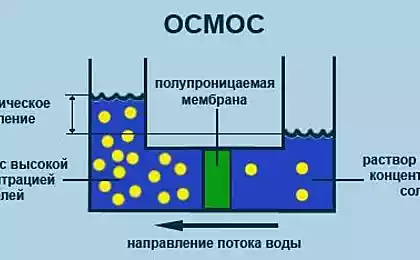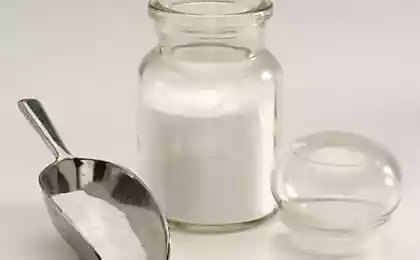496
Birth defects and nitrates in drinking water
Scientists have established a link between the amount of nitrate received by women with drinking water during first trimester of pregnancy and risk of birth defects in their child. The studies were conducted in the North American States of Iowa and Texas. In their framework was based on data collected in the course of the Federal program for the study and prevention of birth defects. They were compared with the addresses of residence and composition of drinking-water supplied at these locations. In the analysis of statistical data was taken into account and data on consumption of bottled water.
"This is what we found: women whose children were born with various anomalies tend to regularly consume more nitrates from drinking water than women whose children were born without defects," said study author Jean Brender, Ph. D., and Professor at the Centre for the study of health faculty of public health, Texas A&m University Evaluation of quantitative content of nitrates was carried out on the basis of survey data OS the consumption of drinking water during first trimester.
The following data were obtained:
• Mothers of children with spina bifida were receiving drinking water daily dose of nitrates is 5 mg or more vs. less than 0,91 mg to mothers who have given birth to a child without defects.
• Children with limb malformations, cleft palate, or cleft lip with a probability of 1.8, 1.9 and 1.8 times more often born to women who received a daily dose of 5.42 mg of nitrate in drinking water than women, the dose of nitrate which was less than 1 mg per day.
The highest content of nitrates was detected, as a rule, in water obtained from private wells in agricultural areas. "Expectant mothers who consume drinking water from private wells should be checked for nitrates," says study co-author Pete Weyer, associate Director of the Center for the study of environmental contamination the University of Iowa. — "Municipal water supply sources are being thus tested regularly, but private — no." And this despite the fact that in Iowa, the quality of water from private wells free of charge for the owner: costs assume district health departments. In other States it costs about $ 20.
In Russia such tests can be ordered, for example, in the Main testing center of drinking water. The cost analysis on the nitrate content will be 350 rubles. A comprehensive analysis of water from 28 parameters, including toxic cadmium, lead, copper, zinc, strontium, and barium, will cost a private individual 3820 rubles, and organizations — 5330 rubles. "Home child" regularly devotes publication on the topic of healthy eating, as well as a potentially dangerous products.

Additional research data:
From the database of the Federal program for the study and prevention of birth defects was obtained address data on 3,300 mothers in Iowa and Texas whose children were born with malformations, and information about 1121 mothers from the control group in which children did not have congenital anomalies. At these locations samples were selected drinking water from centralized municipal water and conducted qualitative and quantitative analyses on the nitrate content in these samples. The same principle was estimated the content of nitrates in bottled water. Assessment of water quality in private wells was carried out by complex modelling of the environmental conditions (for Texas). Daily intake of nitrates was calculated on the basis of data obtained in the survey, women in the study and control groups.
In previous studies on the subject of the relationship between the birth of children with malformations and the level of consumption of parents of nitrates, the source of the latter is not differentiated depending on the consumed potable water and the nitrogen-containing medicines. Nitrogen compounds included in the formula of many medications such as antihistamines, antibiotics or laxatives, and previous studies have implied that their interaction with nitrite can lead to the risk of some types of birth defects. In this study, the relationship between the probability of birth defects and parents of nitrogen-containing drugs have not been established.
An overview of the results of the study were published in the electronic edition of the Vital Records center of health studies of Texas A&M.
Source
Source: /users/1081
"This is what we found: women whose children were born with various anomalies tend to regularly consume more nitrates from drinking water than women whose children were born without defects," said study author Jean Brender, Ph. D., and Professor at the Centre for the study of health faculty of public health, Texas A&m University Evaluation of quantitative content of nitrates was carried out on the basis of survey data OS the consumption of drinking water during first trimester.
The following data were obtained:
• Mothers of children with spina bifida were receiving drinking water daily dose of nitrates is 5 mg or more vs. less than 0,91 mg to mothers who have given birth to a child without defects.
• Children with limb malformations, cleft palate, or cleft lip with a probability of 1.8, 1.9 and 1.8 times more often born to women who received a daily dose of 5.42 mg of nitrate in drinking water than women, the dose of nitrate which was less than 1 mg per day.
The highest content of nitrates was detected, as a rule, in water obtained from private wells in agricultural areas. "Expectant mothers who consume drinking water from private wells should be checked for nitrates," says study co-author Pete Weyer, associate Director of the Center for the study of environmental contamination the University of Iowa. — "Municipal water supply sources are being thus tested regularly, but private — no." And this despite the fact that in Iowa, the quality of water from private wells free of charge for the owner: costs assume district health departments. In other States it costs about $ 20.
In Russia such tests can be ordered, for example, in the Main testing center of drinking water. The cost analysis on the nitrate content will be 350 rubles. A comprehensive analysis of water from 28 parameters, including toxic cadmium, lead, copper, zinc, strontium, and barium, will cost a private individual 3820 rubles, and organizations — 5330 rubles. "Home child" regularly devotes publication on the topic of healthy eating, as well as a potentially dangerous products.

Additional research data:
From the database of the Federal program for the study and prevention of birth defects was obtained address data on 3,300 mothers in Iowa and Texas whose children were born with malformations, and information about 1121 mothers from the control group in which children did not have congenital anomalies. At these locations samples were selected drinking water from centralized municipal water and conducted qualitative and quantitative analyses on the nitrate content in these samples. The same principle was estimated the content of nitrates in bottled water. Assessment of water quality in private wells was carried out by complex modelling of the environmental conditions (for Texas). Daily intake of nitrates was calculated on the basis of data obtained in the survey, women in the study and control groups.
In previous studies on the subject of the relationship between the birth of children with malformations and the level of consumption of parents of nitrates, the source of the latter is not differentiated depending on the consumed potable water and the nitrogen-containing medicines. Nitrogen compounds included in the formula of many medications such as antihistamines, antibiotics or laxatives, and previous studies have implied that their interaction with nitrite can lead to the risk of some types of birth defects. In this study, the relationship between the probability of birth defects and parents of nitrogen-containing drugs have not been established.
An overview of the results of the study were published in the electronic edition of the Vital Records center of health studies of Texas A&M.
Source
Source: /users/1081
9 phrases which should not be used in summary
Japanese scientists on the verge of developing a new capillary restoration technology























